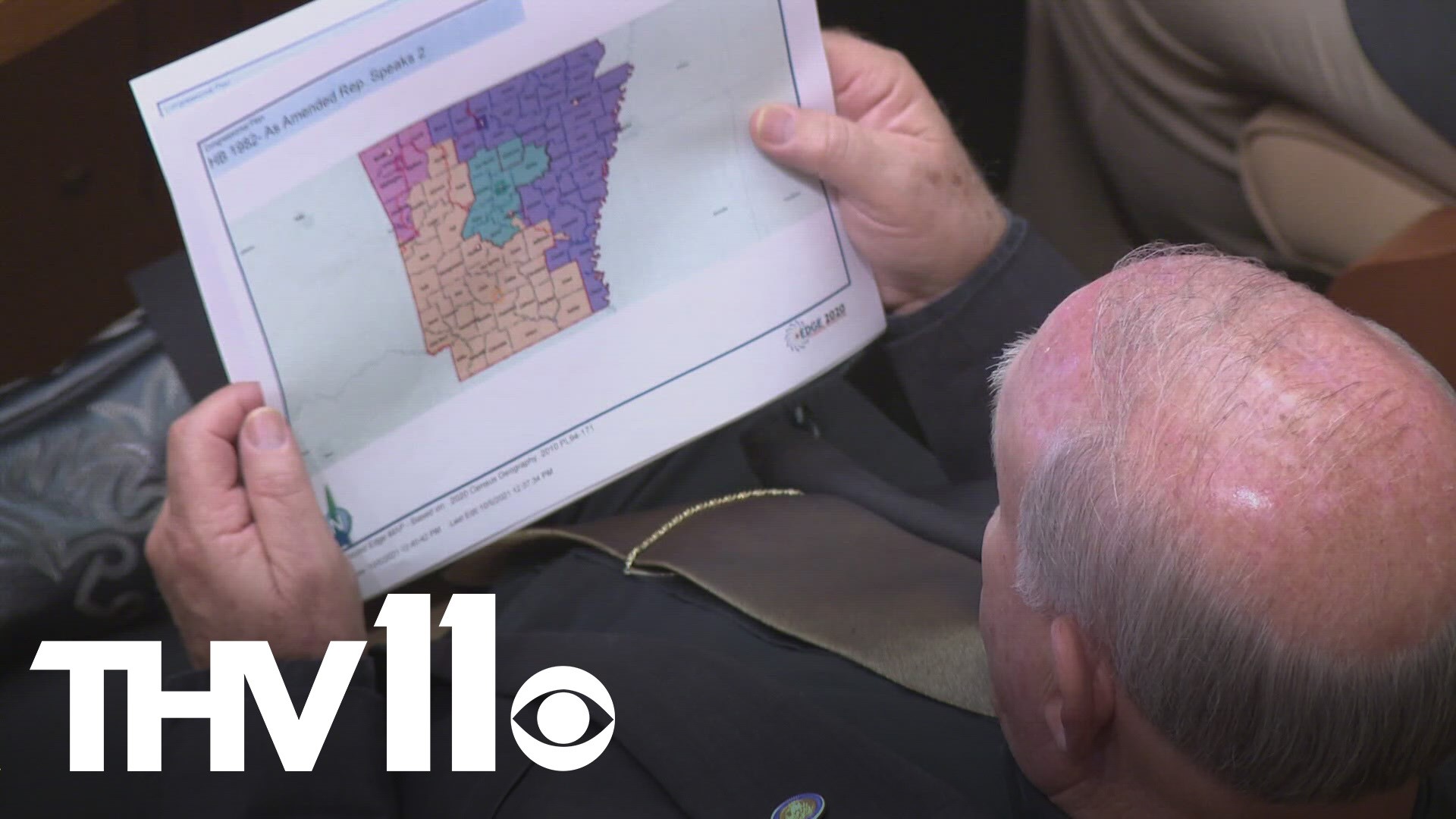LITTLE ROCK, Ark. — The Eighth Circuit Court of Appeals upheld a ruling from a district judge that a lawsuit against Arkansas's 2021 redistricting map should be dismissed because only the U.S. Attorney General can bring up Section 2 lawsuits under the Voting Rights Act.
The process of using Section 2 in the Voting Rights Act has long been used by private individuals and groups to challenge the redrawing of voting maps, according to a report by NPR.
The lawsuit, filed by the Arkansas NAACP and the Arkansas Public Policy Panel, alleges that state officials diluted the votes of Black people by "packing" and "cracking" voting blocs.
When redrawing districts, "packing" means drawing lines that puts a constituency or community into a smaller amount of districts creating a supermajority, while "cracking" means dividing those groups among multiple districts thereby diluting the vote.
Lawyers argue these decisions made during redrawing district lines made it "harder for Black voters to elect the representatives they prefer" and the new map both created a supermajority in some districts while "spreading out the Black voters who remain" in others.
In the lawsuit, the Arkansas NACCP and the Arkansas Public Policy Panel points out that around 16% of Arkansas's population is Black yet only "11% of their preferred candidates will win." Currently, only 11 out of the 100 seats in the state's House of Representative are majority Black districts.
U.S. District Judge Lee Rudofsky initially made the ruling to dismiss the case in June 2023, saying only the U.S. Attorney General could bring up Section 2 lawsuits. The circuit court upheld that ruling in a 2-1 vote.
"For much of the last half-century, courts have assumed that [Section 2] is privately enforceable. A deeper look has revealed that this assumption rests on flimsy footing," said Circuit Judge David Stras and was joined by Judge Raymond Gruender.
Chief Circuit Judge Lavenski Smith dissented, saying that until Congress or U.S. Supreme Court amends the Voting Rights Act, he would "following existing precedent that permits citizens to seek a judicial remedy."
Arkansas Attorney General Tim Griffin calling the ruling a "victory" for citizens and "the rule of law."
“For far too long, courts across the country have allowed political activists to file meritless lawsuits seeking to seize control of how states conduct elections and redistricting," Griffin claimed. "This decision confirms that enforcement of the Voting Rights Act should be handled by politically accountable officials and not by outside special interest groups."
The case is expected to reach the Supreme Court, which in June 2023 ruled in a 5-4 vote that ruled Alabama's Republican-led legislature should create a second district with a large Black population. Alabama has seven congressional seats and one in four voters are Black.

